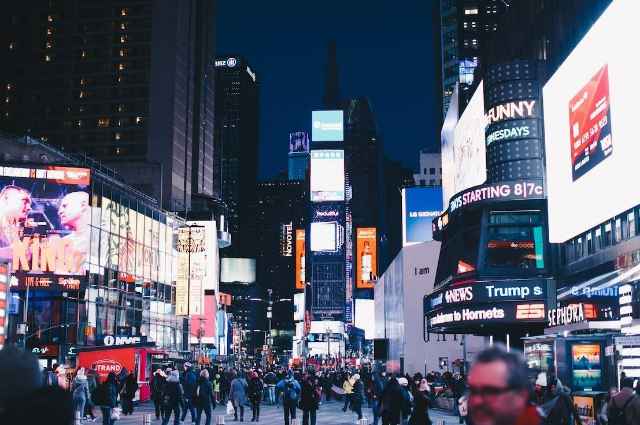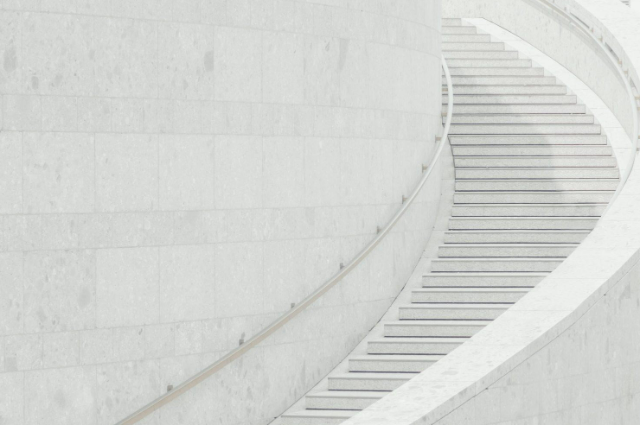
Introduction
In a world driven by consumerism, where the pursuit of possessions and the constant desire for more dominate our lives, a countercultural movement has been steadily gaining momentum—the rise of minimalism. This growing phenomenon represents a powerful shift in values, as individuals seek to simplify their lives and embrace a more intentional and meaningful approach to living. The allure of minimalism lies in its rejection of the excesses and superficiality of consumerist society, offering an alternative path toward contentment and fulfillment. Consumerist societies thrive on the notion that our happiness is directly linked to the acquisition of material possessions. Advertisements bombard us with messages that urge us to constantly upgrade our belongings, convincing us that the key to a better life lies in the next purchase. Yet, this insatiable quest for more ultimately leaves us unsatisfied, burdened with clutter, and disconnected from what truly matters. Against this backdrop, minimalism emerges as a compelling response—a call to embrace simplicity, to shed the unnecessary, and to find joy in the essentials. It challenges the notion that our worth is tied to what we own, and instead encourages us to cultivate a deeper sense of purpose and fulfillment. By adopting minimalist principles, individuals can liberate themselves from the shackles of consumerism and rediscover what truly brings them happiness. In this article, we will explore the rise of minimalism and its significance in a consumerist society.
We will delve into the factors that have contributed to its popularity, the benefits it offers, the challenges individuals face in adopting this lifestyle, and the potential impact it can have on both personal well-being and broader societal change. By embracing minimalism, we have the opportunity to redefine our relationship with material possessions, foster a more sustainable and mindful future, and ultimately find greater contentment in a world that constantly pushes us to consume
Understanding Consumerist Society

A Photo by jimmy teoh from pexels showing abundant advertisements grabbing the eyes of whole street walkers…
Consumerist society is a cultural phenomenon that permeates modern life, shaping our values, behaviors, and aspirations. It is characterized by a relentless pursuit of material possessions and the belief that happiness and fulfillment can be found through the constant acquisition of goods and services. In order to grasp the significance of the rise of minimalism, it is crucial to delve into the foundations and impact of consumerist society. At its core, consumerist society revolves around the notion that our worth and identity are closely tied to what we own. Advertisements, marketing strategies, and societal pressures amplify this belief, constantly bombarding us with messages that fuel our desires and promote a culture of consumption. We are led to believe that the latest gadgets, fashionable attire, and luxurious possessions are essential for a fulfilling life.
Consumerist society encourages a mindset of scarcity and comparison. It perpetuates the idea that we need more to keep up with societal expectations, to project a desirable image, and to stay ahead of others. This mentality creates a never-ending cycle of longing, as we constantly seek the next purchase to fill an imaginary void. As a result, our lives become cluttered with belongings that we accumulate but rarely find true value in. Furthermore, consumerism has significant consequences both at an individual level and on a broader scale. Individually, the pursuit of material possessions often leads to financial strain and debt. The constant need to upgrade and keep pace with trends can place a heavy burden on personal finances, leaving individuals trapped in a cycle of working to afford an unsustainable lifestyle. Additionally, consumerism has profound environmental implications. The production, consumption, and disposal of goods contribute to resource depletion, pollution, and waste. The pursuit of endless material possessions fuels unsustainable practices that harm the planet and threaten the well-being of future generations.
In summary, consumerist society is characterized by a culture that places immense value on material possessions, perpetuating a cycle of consumption and comparison. It shapes our desires, influences our behaviors, and leaves us longing for more. Understanding the impact of consumerism is crucial for comprehending the rise of minimalism, as individuals increasingly seek an alternative path that emphasizes simplicity, purpose, and a reevaluation of what truly brings happiness and fulfillment.
The Emergence of Minimalism
In response to the excesses and unsustainability of consumerist society, a countercultural movement has emerged—minimalism. Minimalism represents a shift in values and a rejection of the relentless pursuit of material possessions. It advocates for a simpler, more intentional way of living, where individuals prioritize what truly matters and let go of the unnecessary. Understanding the emergence of minimalism involves exploring its historical context, underlying principles, and the factors that have contributed to its recent rise in popularity. Minimalism, as a concept, has deep historical roots. It can be traced back to various cultural and philosophical movements throughout history, such as Zen Buddhism, the Arts and Crafts Movement, and the Minimalist art movement of the 1960s. These influences laid the groundwork for the idea that less can be more—a belief that simplicity and a deliberate reduction of excess can lead to a more meaningful and fulfilling existence. In recent years, several factors have propelled the resurgence of minimalism. One significant factor is the growing environmental consciousness and the desire for sustainable living. As individuals become more aware of the ecological consequences of consumerism, they seek alternative lifestyles that minimize their impact on the planet. Minimalism aligns with this ethos by promoting conscious consumption, reducing waste, and embracing practices like decluttering, recycling, and repurposing.

Source: from the article of DAVID PERELL titled : ‘After Minimalism’
Another driving force behind the rise of minimalism is the economic and financial instability experienced by many individuals. The global financial crisis and subsequent economic challenges have led people to question the traditional notions of success tied to material wealth. The realization that financial security and happiness are not solely derived from material possessions has fueled a shift in mindset towards minimalism as a means of finding greater contentment and financial freedom. Furthermore, the rise of social media and the influence of minimalist influencers have played a significant role in popularizing minimalism. Through platforms like Instagram and YouTube, individuals showcase their minimalist lifestyles, sharing tips, and inspiring others to embrace simplicity. The visually appealing aesthetics and the promise of a more intentional and fulfilling life have resonated with many, creating a ripple effect that has contributed to the movement's growth. In short, minimalism has emerged as a countercultural response to the excesses and unsustainability of consumerist society. It draws from historical influences, such as Zen Buddhism and artistic movements, while incorporating contemporary concerns like environmental sustainability and financial well-being. The recent rise in minimalism can be attributed to a convergence of factors, including the desire for sustainable living, economic instability, and the influence of social media. As more individuals seek a simpler and more meaningful existence, minimalism offers a path towards intentional living and the rediscovery of what truly brings joy and fulfillment.
Benefits of Embracing Minimalism
Embracing minimalism offers a multitude of benefits that extend beyond the mere act of decluttering physical spaces. It represents a conscious shift towards intentional living, prioritizing quality over quantity and focusing on what truly matters. By simplifying our lives and letting go of the unnecessary, we open ourselves up to a range of advantages that contribute to overall wellbeing and a more fulfilling existence. One of the primary benefits of embracing minimalism is the sense of freedom it brings. By reducing our reliance on material possessions, we free ourselves from the burden of excessive clutter and the constant need to acquire more. This newfound freedom allows us to redirect our energy and resources towards experiences, relationships, and personal growth, rather than being consumed by the pursuit of material wealth. Minimalism also promotes financial freedom and reduced stress. By curbing our consumerist tendencies and living within our means, we can alleviate the financial strain often associated with keeping up with the latest trends and maintaining a lifestyle of excess. Minimalists focus on mindful spending, prioritizing investments in experiences, education, and personal well-being rather than on accumulating material possessions that provide temporary satisfaction but long-term financial stress.
Moreover, embracing minimalism encourages mindfulness and intentional living. By removing distractions and excess from our lives, we create space for greater clarity and focus. Minimalism fosters a heightened awareness of the present moment, allowing us to appreciate the beauty and significance of the simple things in life. This mindful approach extends beyond our physical surroundings and seeps into our daily routines, relationships, and overall well-being. In addition, minimalism contributes to environmental sustainability. By consuming less and adopting a more conscious approach to our purchasing habits, we reduce our ecological footprint. Minimalists prioritize quality over quantity, opting for durable and sustainable products that have a longer lifespan. This commitment to sustainable consumption aligns with the urgent need to protect our planet and preserve its resources for future generations. Furthermore, embracing minimalism can lead to improved mental and emotional well-being. A clutter-free and organized living space promotes a sense of calm and tranquility. By eliminating the excess, we create a physical environment that supports relaxation, focus, and creativity. Minimalism also encourages us to evaluate our priorities and cultivate gratitude for what we have, fostering a greater sense of contentment and reducing the constant desire for more.

Photo by Andrew Neel from pexels
The benefits of embracing minimalism extend beyond the physical act of decluttering. By adopting a minimalist lifestyle, individuals can experience freedom from materialism, financial stability, heightened mindfulness, and a reduced environmental impact. The intentional pursuit of a simpler, more meaningful existence contributes to overall well-being and cultivates a sense of contentment and fulfillment. Embracing minimalism offers a powerful antidote to the excesses and pressures of consumerist society, allowing individuals to live in alignment with their values and discover what truly brings them joy and purpose.
Challenges and Obstacles
While embracing minimalism can bring numerous benefits, it is important to acknowledge the challenges and obstacles that individuals may encounter on their minimalist journey. These challenges often stem from the deeply ingrained consumerist culture and societal expectations that surround us. Overcoming these hurdles requires self-reflection, determination, and a willingness to challenge the status quo. One of the primary challenges individuals face when adopting minimalism is resistance from consumerist culture. Society often equates material possessions with success and status, making it difficult to break away from the constant pressure to acquire more. Minimalists may encounter skepticism or judgment from others who do not understand or appreciate the values of simplicity and intentional living. Overcoming this challenge requires a strong sense of self-confidence and a willingness to stay true to one's own convictions, even in the face of societal expectations. Another obstacle lies in the attachment to material possessions and the sentimental value we often associate with them. Letting go of belongings can be emotionally challenging, as they may be tied to memories, identity, or aspirations. Minimalism encourages individuals to evaluate their attachments and reassess the true significance of possessions. It may require confronting our fears of loss and learning to detach our sense of self-worth from material goods.
Additionally, misconceptions and stereotypes surrounding minimalism can present challenges. Some may perceive minimalists as extreme, austere, or lacking in comfort and enjoyment. However, minimalism is a highly personal journey, and it is important to remember that it can be tailored to individual preferences and values. Communicating the benefits and intentions behind minimalist choices can help dispel these misconceptions and foster a more inclusive understanding of minimalism as a lifestyle choice. Moreover, maintaining a minimalist lifestyle requires ongoing effort and vigilance. Consumerist temptations are ever-present, whether through targeted advertisements, societal pressures, or the desire for novelty. It can be challenging to resist the allure of new products and the constant messaging that suggests our happiness lies in the next purchase. Staying committed to minimalism involves cultivating mindfulness and regularly reassessing our purchasing habits and consumption patterns.

Photo by Pixabay from Pexels
Minimalism requires consistent self-reflection and evaluation of our values and priorities. It may entail making difficult decisions about what truly adds value to our lives and what can be let go. This process of introspection and self-discovery can be challenging and may involve periods of discomfort and uncertainty. However, by embracing these challenges and obstacles, individuals can experience personal growth and a deepening understanding of their own needs and desires. Embracing minimalism is not without its challenges and obstacles. Resisting the pressures of consumerist culture, letting go of attachments to possessions, overcoming misconceptions, and maintaining a minimalist lifestyle all require effort and determination. However, by acknowledging and addressing these challenges, individuals can navigate the path of minimalism with greater clarity and resilience, ultimately reaping the rewards of a simpler, more intentional, and fulfilling way of life.
Practical Steps Towards Minimalism
Embracing minimalism is a transformative journey that involves intentional choices and actions to simplify our lives and prioritize what truly matters. While the process is highly personal and may vary for each individual, there are practical steps that can guide us on the path towards minimalism. These steps help us declutter our physical spaces, streamline our belongings, and cultivate a more intentional and fulfilling lifestyle.
- Reflect on Values and Priorities:
Reflect on your values and priorities. Consider what truly brings you joy, fulfillment, and meaning in life. Identify areas where excessive consumption or clutter may be hindering your ability to focus on these core values.
- Declutter with Purpose:
Take a systematic approach to decluttering your physical spaces. Start with one area at a time, such as a closet, a room, or a category of belongings. Evaluate each item and ask yourself if it aligns with your values and serves a purpose in your life. Let go of things that no longer contribute to your well-being or hold sentimental value.
- Practice Mindful Consumption:
Adopt a mindful approach to consumption. Before making a purchase, pause and consider if the item is truly necessary and aligned with your values. Avoid impulse buying and instead focus on acquiring items that genuinely add value or bring you joy. Choose quality over quantity and prioritize sustainable and ethically sourced products.

Streamline Daily Routines:
Simplify your daily routines by focusing on the essentials. Identify tasks, habits, or commitments that no longer serve a purpose or bring you joy. Streamline your schedule and eliminate unnecessary busyness. By creating space in your day, you allow yourself more time for activities that align with your values and contribute to your well-being.
- Cultivate Gratitude and Contentment:
Practice gratitude for what you already have. Shift your mindset from always wanting more to appreciating and finding contentment in the present moment. Focus on experiences and relationships rather than material possessions, and savor the simple pleasures in life.
- Mindfully Curate Your Environment:
Be intentional about the items you bring into your living space. Create a peaceful and clutter-free environment by carefully selecting decor and belongings that align with your aesthetic preferences and serve a purpose. Keep only what you truly need and love, and regularly evaluate and reassess your surroundings to maintain simplicity.
- Embrace Digital Minimalism:
Extend minimalism to your digital life. Declutter your digital devices by organizing and deleting unnecessary files, apps, and emails. Set boundaries for screen time and be mindful of the content you consume online. Unsubscribe from newsletters and notifications that no longer serve you, and prioritize meaningful connections over mindless scrolling.
- Focus on Experiences and Relationships:
Shift your focus from material possessions to experiences and relationships. Invest in creating memories, exploring new interests, and building meaningful connections with others. Cultivate a sense of community and support by engaging in activities that bring joy and contribute to personal growth.
Minimalism is a journey, not an endpoint. It is a continuous process of reassessing and aligning your life with what truly matters to you. By taking practical steps towards minimalism, you can create a lifestyle that brings greater simplicity, fulfillment, and contentment.
Minimalism and Societal Impact

Photo by Mike Chai from Pexels..Look we can see the (portrait of) blindly running people who are probably busy building their lives up to the expectation of the consumerist world
The embrace of minimalism extends beyond individual lifestyle choices and has the potential to create a significant impact on society as a whole. By challenging the norms of consumerism and advocating for intentional living, minimalism can inspire positive change in various aspects of society. One of the societal impacts of minimalism is its potential contribution to environmental sustainability. Consumerism and overconsumption have led to the depletion of natural resources and increased waste generation. Minimalism encourages conscious consumption and the reduction of unnecessary purchases, leading to a decreased demand for goods that contribute to environmental harm. By prioritizing quality over quantity and opting for sustainable products, minimalists can help promote a more sustainable and eco-friendly economy. Minimalism also challenges the prevailing notion of success tied to material wealth and possessions. In a consumerist society, the accumulation of material possessions often becomes a measure of social status and self-worth. By embracing minimalism, individuals can shift their focus away from material acquisition and reevaluate their definition of success. This can lead to a more balanced and fulfilling perspective that prioritizes personal growth, relationships, and overall well-being, rather than the pursuit of endless material accumulation.
Moreover, minimalism can foster a sense of community and social connection. By rejecting the notion that happiness lies in material possessions, minimalists often seek alternative sources of fulfillment. This can involve engaging in community-based activities, sharing resources, and promoting collaboration over competition. Minimalism encourages individuals to connect with others, share experiences, and contribute to the well-being of their communities, fostering a more compassionate and interconnected society. Minimalism also challenges the prevailing culture of excess and waste. In a consumerist society, the constant pursuit of the latest trends and the pressure to keep up with the Joneses lead to overconsumption and excessive waste generation. Minimalism promotes mindful consumption, encouraging individuals to make deliberate and conscious choices about what they bring into their lives. By reducing waste and practicing responsible consumption, minimalists contribute to a more sustainable and responsible use of resources, ultimately minimizing the negative impact on the environment. Furthermore, the rise of minimalism has prompted critical conversations about the nature of happiness and fulfillment. By questioning the pursuit of material possessions and adopting a more intentional approach to life, minimalists challenge the notion that happiness can be derived solely from external sources. This introspection encourages a deeper exploration of personal values, purpose, and overall life satisfaction. By prioritizing experiences, relationships, and personal growth, minimalism promotes a shift in societal values towards a more holistic and meaningful understanding of happiness.
In short, minimalism has the potential to create a significant impact on society by challenging consumerist norms and promoting intentional living. Its emphasis on environmental sustainability, redefining success, fostering community, reducing waste, and reevaluating the nature of happiness contributes to a more mindful and compassionate society. By embracing minimalism, individuals can not only transform their own lives but also inspire broader societal change that aligns with the principles of simplicity, sustainability, and overall well-being.
Conclusion
The rise of minimalism represents a powerful response to the excesses and pressures of consumerist society. By embracing simplicity and intentional living, individuals can experience a multitude of benefits that extend beyond decluttering physical spaces. Minimalism offers freedom from materialism, financial stability, mindfulness, and a reduced environmental impact. It challenges societal norms, fosters personal growth, and encourages a reevaluation of what truly brings joy and fulfillment. Moreover, minimalism has the potential to create a positive societal impact by promoting environmental sustainability, redefining success, fostering community, and inspiring critical conversations about happiness and fulfillment. As more individuals embrace minimalism, the collective shift towards a more mindful, purposeful, and sustainable way of life becomes a possibility. Through the conscious choices and actions of each individual, a ripple effect can be created, shaping a society that values simplicity, authenticity, and overall well-being.

Photo by Sarah Dorweiler
In a consumerist society that often equates happiness and success with material possessions, minimalism offers an alternative path—a path that prioritizes quality over quantity, experiences over possessions, and mindful consumption over mindless accumulation. It challenges the notion that more is always better and encourages individuals to reevaluate their relationship with belongings, question societal expectations, and define their own values and priorities. While the journey towards minimalism may come with challenges and obstacles, the rewards are significant. Embracing minimalism empowers individuals to regain control of their lives, focus on what truly matters, and live in alignment with their values. It encourages a shift from a culture of excess and waste to one of mindfulness and sustainability. Minimalism inspires introspection, promotes gratitude, and cultivates contentment by stripping away the unnecessary and revealing the essence of a meaningful and fulfilling existence. As we navigate a world where consumerism and materialism continue to dominate, the rise of minimalism serves as a powerful reminder that simplicity has inherent value. It reminds us that happiness does not lie in the accumulation of possessions but in the relationships we nurture, the experiences we cherish, and the moments of genuine connection and self-discovery. Ultimately, embracing minimalism is a personal choice— an invitation to step away from the noise and chaos of a consumerist society and create space for a more intentional and fulfilling life. It is a journey of self-discovery, self-expression, and selfliberation. By embracing minimalism and embracing simplicity, we can find greater peace, purpose, and joy in a world that often encourages us to seek them in all the wrong places.
